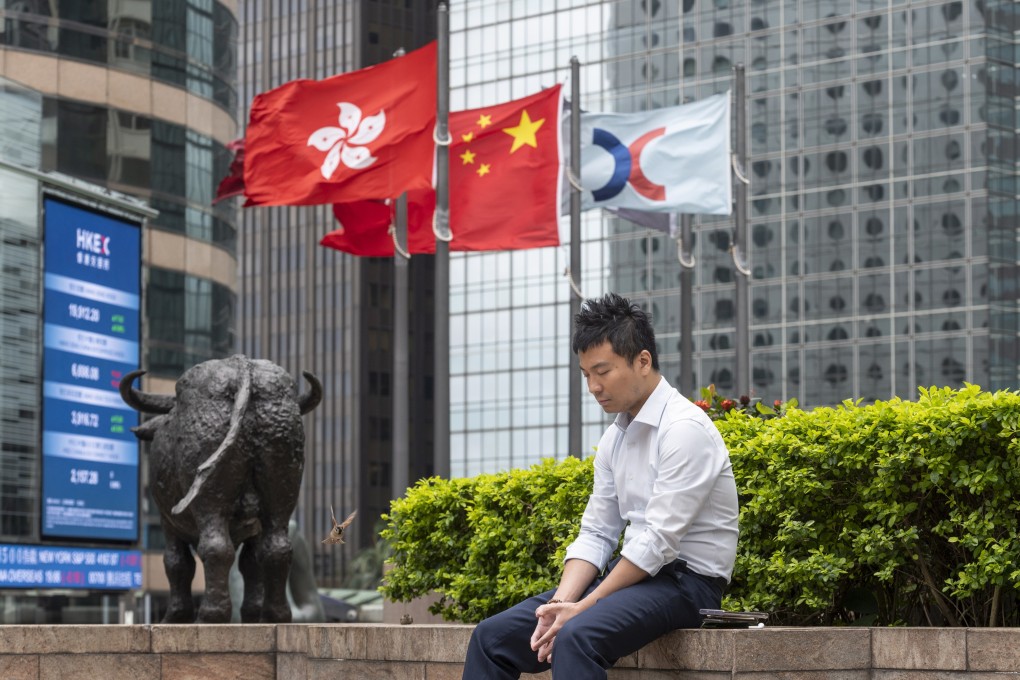Advertisement
Opinion | Hong Kong taking a hit from global business cycle is a design feature, not a bug
- The city’s economic structure, which includes the US dollar peg, is part of its value proposition, but exposes it to market forces operating far away
- Unemployment and GDP figures show the city is managing the impact of external shocks, and its high labour productivity and famed resilience will hold it in good stead
Reading Time:3 minutes
Why you can trust SCMP
2

Being Asia’s premier international finance hub has brought great benefits to Hong Kong’s people. The city has enviable transit infrastructure, one of the world’s best performing school systems and gross income per capita of US$54,370, slightly higher than Germany’s.
On my recent trip to the World Economic Forum in Davos, many business and political leaders asked me how Hong Kong has been faring in the wake of Covid-19. I answered that this is undeniably a difficult moment. While the worst of the Covid-19 pandemic is behind us, and activity is normalising, external shocks from two wars, US inflation and higher interest rates are taking a toll.
Global volatility naturally trickles into Hong Kong’s economy; indeed, its markets tend to take a bigger hit than most from fluctuations in the world’s business cycle. However, this is a feature, not a bug, of Hong Kong’s design. It is a natural expression of this city’s extraordinary openness, and its connection to the US$18 trillion powerhouse in mainland China.
It’s important to understand the upsides and downsides of the intentional policy decisions that underlie Hong Kong’s economic structure. The Hong Kong dollar is pegged to the US dollar, because China’s “one country, two systems” model preserves a special space for this city’s political, legal and financial arrangements.
This regime has proven crucial to Hong Kong’s value proposition, both to overseas investors and mainland Chinese companies seeking to raise funds for international expansion.
However, when American inflation spikes, monetary authorities must raise local rates upwards, alongside the Fed, regardless of local conditions. This time, the interest-rate-raising cycle is concurrent with a cooler mainland economy, plus US inflationary pressure and geopolitical uncertainties that have intimidated trade and investment flows.
Advertisement
Select Voice
Choose your listening speed
Get through articles 2x faster
1.25x
250 WPM
Slow
Average
Fast
1.25x


